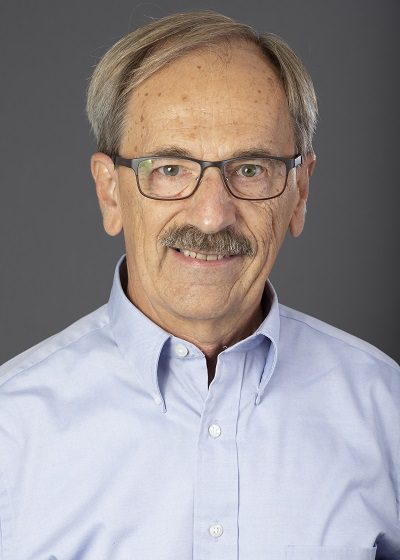From the Editor: Engineers Need To Find Their Voice in 2021

What if you inspected a bridge and found severe rust deterioration of a fracture-critical steel member, and you reviewed previous inspection reports that documented the progression of this condition? And what if you took this information back to the office, and everyone agreed this was a serious problem? And what if you requested the governing body for funds to correct this problem, and they said they don’t believe the experts, refused to do anything about it and told the public to continue driving across the bridge because the problem will go away?
Or what if you wanted to change design standards so engineering facilities can better withstand the increased forces put upon them due to the effects of climate change? And what if you knew that more than 97 percent of climate scientists agree that global warming is real and caused by human activities? And what if the engineers in the agencies who maintain the standards agree? And what if some executive branch of government decides they don’t believe the scientists and engineers, and forbids revision of the standards while telling you to continue to design facilities you know will come under stresses that aren’t included in the design?
Such challenges to scientific, fact-based issues have been part of our experiences during the last four years. Medical professionals, environmental scientists, religious leaders and human-rights advocates have had to face extreme pressure against what they have known was correct. These pressures were brought on by special-interest groups, lobbyists, politicians and corporations who, for the most part, weren’t looking out for our best interests, but were seeking short-term gains.
Will This Change?
The United States now has a new administration and new leadership that has a tremendous opportunity to make a direction correction and steer us along a path we, as engineers, know is better for the world. Unfortunately, there are still many people who remain short-sighted and will continue to present the same types of challenges.
Certainly, our first priority is to address the COVID-19 pandemic. All our focus has to be on finding the quickest, most-effective path to contain the virus, because our actions are severely limited until this is under control. We must ensure our economy provides every American with food and housing in a safe, healthy environment. Then we can begin working on the longer-term issues we face.
Every year at this time—since I began contributing to Informed Infrastructure four years ago—this column has, in one way or another, discussed the need for a comprehensive infrastructure bill. It has been promised but not delivered. The impasse in Congress has stymied any chance of a meaningful program. In a very simplified analysis: one party wants to spend just enough to get by, and the other wants to include everything to fix the infrastructure and the environment. I’m sure we’ll end up somewhere in-between.
But …
• How many more years can we let the infrastructure grade be D and not do something?
• How many more years can we let the temperature of the Earth rise and not do something?
• How many more years can we let our energy sources add to pollution and not do something?
• How many more years can we let our citizens deal with unsafe water and not do something?
Engineers have tried to inform the public about the serious state of our infrastructure. The American Society of Civil Engineers (ASCE) publishes its report card, but, as noted in the first two paragraphs, those in power don’t want to listen to the facts. They seem to not want to push forward programs that will move us toward a better future if it costs money (read: increases in taxes or decreases in pet spending) or goes against the direction preferred by corporate lobbyists.
Help Others Understand
Perhaps a better strategy is to help those in power understand the positive economic impacts of infrastructure investment. Politicians need the evidence to explain this impact as well as the language to use to inform their constituents. The ACSE’s “Failure to Act” reports do exactly this, but the engineering community must do better at pressing this issue.
What if you know, based on science, that wearing a mask will help prevent the spread of a virus, but someone tells you it’s not necessary? What if you know, based on technical analyses, that our infrastructure needs immediate attention, but others in power will not take action? What if you know, based on scientific studies, that our climate is changing and affecting our entire environment, but some simply don’t “believe” it’s a problem?
It’s not enough for engineers to talk amongst ourselves about these issues. We must help everyone—local and federal representatives, relatives, friends, students—understand the critical nature of the infrastructure and our environment as well as how this relates to a positive effect on our economy. We must do this now.
About Robert Schickel
Robert Schickel was born in New Jersey and received his BS in Civil Engineering degree in 1971 from Valparaiso University in Indiana. His career started as a bridge design engineer and expanded to include design of various transportation facilities, including highways, bridges, rail lines and stations, and airport runways. Mr. Schickel managed engineering offices ranging from 20 to 140 people. He also served as a consultant to a large utility company. Mr. Schickel currently resides in Indiana and serves as Adjunct Professor for the College of Engineering at Valparaiso University. He enjoys his retired life at his lake house, playing golf, listening to music and spending time with his family, especially his grandchildren.


